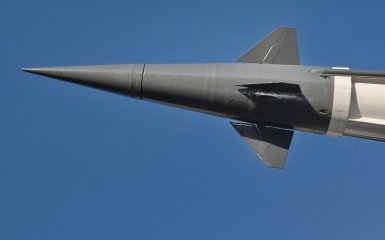During the massive missile attack on Ukraine on April 27, the Russians used Calibers, but did not attack with Shaheds
What is the peculiarity of the attack of the Russian Federation on Ukraine on April 27
As the spokesman of the Air Force of the Ukrainian Armed Forces, Ilya Yevlash, said, this is one of the first attacks after a brief lull.
Over a period of time, the Russian Federation accumulated its missile reserves. That night, they also used Kalibr from the Black Sea, they managed to shoot down 6 out of 8 missiles of this type.
In addition, according to the speaker, the occupiers began to attack intensively, raised their Tu-95 strategic bombers after the downing of the Tu-22M3.
They took a break for a while. And now they have started again to launch powerful classic attacks on our energy and critical infrastructure, — said Ilya Yevlash.
Also, according to him, the enemy struck quite powerfully, including with the use of "Daggers".
This is a very powerful weapon that is difficult to knock down. We only have certain means that have proven their effectiveness against them, namely, the Patriot can effectively resist, but, unfortunately, we lack these systems in the directions where the hits took place.

Ilya Yevlash
Spokesman of the Air Force of the Armed Forces of Ukraine
At the same time, according to Yevlash, the enemy did not use "shaheda" during the attack.
Yes, there were no "martyrs", as they have been for the past few days. Why so? Apparently, they have their own strategic plan, why exactly they switched to missiles, — summed up Yevlash.
Russian missile attack on Ukraine on April 27
On the night of April 27, Russian invaders hit 4 DTEK thermal power plants with missiles.
The invaders attacked energy facilities in Dnipropetrovsk, Ivano-Frankivsk and Lviv regions. The civilian population suffered as a result of the enemy's attack.
In total, the enemy used 34 air, ground and sea-based missiles:
9 Kh-101/Kh-555 cruise missiles from Tu-95 MS strategic aviation aircraft (launch area of Saratov Region — RF.);
9 Kh-59/Kh-69 guided air missiles (from the airspace of the Belgorod region and from the waters of the Sea of Azov);
2 S-300 anti-aircraft guided missiles (from the Belgorod region — RF.)
2 "Iskander-K" cruise missiles (from Crimea);
4 Kh-47M2 "Kinjal" aeroballistic missiles from MiG-31K aircraft (launched from the airspace of the Ryazan and Tambov regions — RF.);
8 Kalibr cruise missiles from the Black Sea.
Fighter aircraft, anti-aircraft missile units of the Air Force, mobile fire groups and electronic warfare equipment of the Defense Forces of Ukraine were involved in order to repel the new mass attack of Russia.
In total, air defense forces managed to destroy 21 air targets: 6 Kh-101/Kh-555 cruise missiles; 8 Kh-59/Kh-69 guided air missiles; 1 Iskander-K cruise missile; 6 Kalibr cruise missiles.




